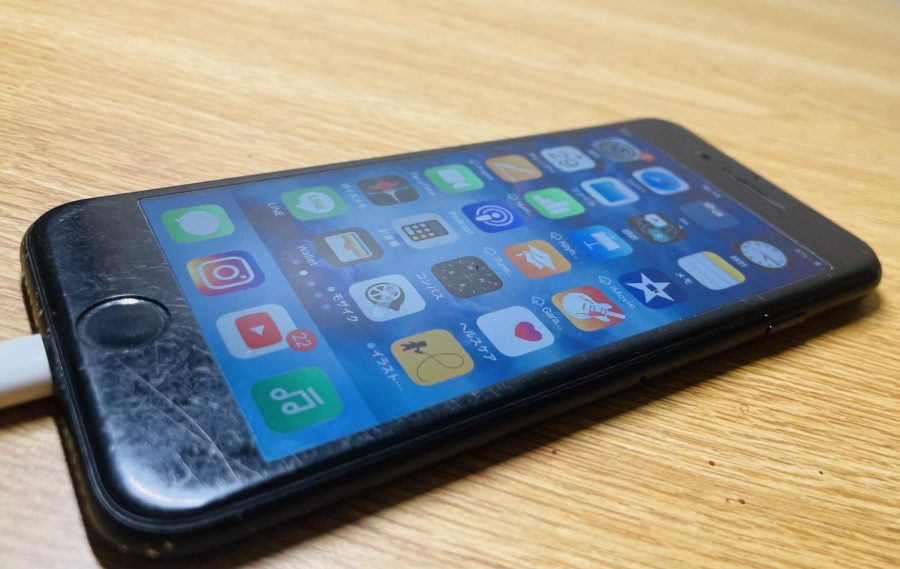A dark side of smartphones: interference with face-to-face communication
How often do you wake up and check your smartphone first? In my case, I usually check it immediately.
In modern society, smartphones are so pervasive that we cannot imagine our lives without them. They allow us to communicate with others, whenever and wherever. People use smartphones not only as a phone to call their friends or relatives, but also as a tool for watching videos or playing games. These functions have made our lives more convenient than ever.
However, I believe that the more powerful smartphones become, the less important face-to-face communication is. In other words, smartphones tend to interfere with our natural, daily conversations. We see many disturbances caused by smartphones on a daily basis. I experienced such an interference a few days ago.
Ever since I came to Chico State as an international student from Japan, I have struggled with English. Especially in class, where it is challenging for me to understand all of the content. Thus, I am always eager to listen to conversations between professors and students in order to keep up. I focus on every word. On top of what is already a challenging situation, I hear smartphone notification sounds from some students in class.
One time, as soon as the sound went off, the professor stopped what she was saying and said, “Hey! I said you should turn off your smartphone before this class.”
Distracted and annoyed, the professor forgot what she was talking about and moved on to the next topic.
As a result, I was left with a limited understanding of the topic. For most students, my experience may be easily overlooked, but for me it was important to listen to the professor’s speech carefully. Similar to my own experience, I believe that there are a lot of other situations where face-to-face communication is hindered by smartphones.
Have you ever felt annoyed when your friends or relatives use a smartphone during a conversation? I believe most people have, especially when the person they’re talking to answers a phone call or glances down at a text. You might feel as though you are competing against a device for someone’s attention — and you’re losing. This scenario happens not only here, but also in my country.
I had a similar experience in Japan, when my friend’s smartphone interrupted our conversation while I was talking about my interpersonal worries at a restaurant. I asked him for a tip on how to get along with one of his friends. Even though it was a serious situation, every time he received a notification on his smartphone, he paid more attention to texts. Although I knew he was listening to my story, I still felt uncomfortable.
In fact, according to the book “Interpersonal Communication” by Kory Floyd, Floyd cites a study about a phone’s effect on communication by psychologist Andrew Przybylski and Netta Weinstein. The research shows that “the presence of mobile phones can interfere with human relationships, an effect that is most clear when individuals are discussing personally meaningful topics.”
The book also features experiment data by social scientist Joseph Grenny, which states almost 90% of us tend to be hurt by friends or relatives who ignore us for technical reasons like using smartphones.
Clearly, the development of smartphones interferes with our face-to-face interactions. Sure, a smartphone is a tool for communicating effectively, but we should also recognize that it can prevent us from that very thing. This is particularly true in class, where any sort of distraction can hinder education.
I find this very important not only for other students, but also for one’s self, in order to limit miscommunication with others. I believe that this awareness provides us with a good opportunity to consider how to keep our distance with smartphones.
Although smartphones are essential parts of our society, they also have a dark side in that they can interfere with our daily lives. Still, we can reduce smartphone-induced disturbances by using them properly. The most important thing is to make an effort not to use your smartphones during face-to-face communication. If it is challenging for you, some apps can limit screen time. Through awareness and conscious effort, I believe we can find a healthy balance.
Hiroto Nakajima can be reached at [email protected] @hiroto_nakajima_1120 on Instagram.









